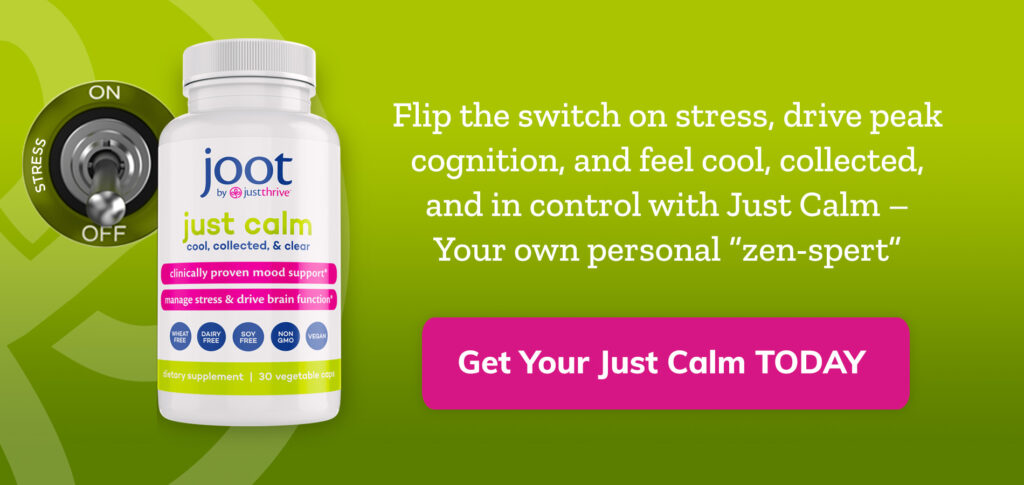Overcoming anxiety is possible and doable with these nine tips. Read on, and live your days worry-free from here on out!
9 Tips to Start Overcoming Anxiety Today
1. Skip the Coffee to Avoid the Jitters
Overcoming anxiety can be as fast as going easy on the coffee (and even your tea). Some people are sensitive to caffeine, which can lead to jittery feelings or palpitation.
If you are already dealing with anxiety, it’s easy for you to confuse these body changes as having panic attacks.
What if you need a pick-me-up in the morning? Fortunately, you can already drink some coffee alternatives.
Rising Energy, for one, contains guayusa extract, which makes the drink very similar to coffee. The biggest difference is it doesn’t give you the nerves.
2. Identify the Source of the Worry to Deal with It Properly
You can never learn the ways to overcoming depression and anxiety unless you know the root cause of the problem. The issue is it’s not the easiest thing to do.
Take, for example, overcoming social anxiety and shyness. If you’re one of those who are afraid to speak in front of the crowd, you need to dig deeper into your subconscious and past experiences.
At first, you may think you don’t like the feeling of being in the crowd. Upon closer inspection, though, you realize you had a bad experience with public speaking.
Working with a therapist can help you determine the root cause of your negative emotions, as well as your triggers. This way, you can pay attention to cues and control your anxiety before it overcomes you.
3. Consider Taking Adaptogens to Help You Deal with Stress

Stress can increase feelings of anxiety and even depression. Just imagine your heart pumping as you try to beat the eleventh-hour deadline for a project.
Making things worse, sometimes, your body doesn’t stop producing stress hormones or cortisol. In the process, you always feel as if your heart is beating faster or you’re always on an adrenaline high.
Overcoming health anxiety may mean consuming adaptogens. These are substances, such as herbs, that help regulate the feelings of stress.
They don’t remove stress per se, but you find yourself effectively managing and overcoming anxiety despite the chaos.
4. Boost Your GABA to Control Your Worrisome Thoughts
It’s not unusual for a lot of people to have difficulties overcoming anxiety and depression. It’s because the problem may already be in the brain.
The brain is a complex organ with millions of neurons communicating with one another. They also have chemical messengers called neurotransmitters.
When a person is anxious, at least two regions of the brain become active: the hippocampus and the amygdala. The amygdala is responsible for regulating emotions while the hippocampus helps store short-term memory.
Both work together with your fight-flight response in case you are faced with a threat. Using your previous experience or memory with the threat, both regions of the brain help alert you when you need to avoid something.
The problem with anxiety is these parts of the brain may be more active than they should. You sense dread, danger, or fear, even when there’s no reason to.
GABA, which stands for gamma-aminobutyric acid, is a neurotransmitter that may help you deal with anxiety. It is inhibitory, which means it can reduce the excitable state of the amygdala and the hippocampus.
Some excellent sources of GABA are L-theanine, valerian root, some types of nuts, and fish. You can also derive them from the power blends present in Alkalizing Greens such as spinach and broccoli.
5. Expose Yourself to the Source to Desensitize Yourself
Many experts believe that for you to deal with your allergies, you need exposure to the triggers. This way, you train your immune system to recognize these foreign substances as non-threats.
You can apply the same principle with worry, especially if you want to learn the way to overcoming performance anxiety. If you have stage fright, expose yourself to more people instead.
It doesn’t have to happen overnight. Overcoming social anxiety step-by-step may begin with performing for your circle of friends or family, for example.
Then you can accept invitations from your community or school until you feel more comfortable being in front of a crowd.
RELATED: Fast Trax To Relax
6. Retrain Your Thoughts to Change Your Mindset

Did someone break your heart? You can consider many ways to manage your emotional pain, including overcoming relationship anxiety.
Psychologists often use cognitive behavioral therapy (CBT) to help those with overwhelming anxiety. In hindsight, it is retraining your thoughts by challenging negative patterns and using them to help you develop positive behavior.
A 2014 meta-analysis suggested CBT is a moderately effective method in improving the quality of life of those with anxiety disorders.
7. Meditate to Bring Yourself Back to the Present
Why do some people find it hard overcoming generalized anxiety disorder (GAD)? The answer may be because they can’t help but think about the future and the what-ifs.
These scenarios can nag you even if you are already taking all the necessary precautions and steps so they won’t happen. By thinking so much about what’s to come, however, you cannot enjoy the present anymore.
To help bring you back to now, you can practice meditation. A 2017 study showed mindfulness meditation is effective for those with GAD, especially when coping with acute stress.
Meditation is difficult for someone who’s never tried it, so you may benefit from guided tracks. These can also induce the alpha state, which is your most relaxed phase while awake.
8. Exercise to Increase the Production of Serotonin
Exercise provides a wide range of health benefits, especially for those overcoming anxiety. It can bring your attention away from the sources of stress or worry.
Physical activity can also boost the brain-derived neurotrophic factor (BDNF). It is a type of protein that maintains, produces, and promotes the growth of nerve cells in the brain.
It can also increase the levels of certain neurotransmitters that help regulate emotions, mood, and well-being. One of these is serotonin.
Low levels of it can decrease the quality of sleep and sexual desire. It can also lead to issues with appetite, digestion, and social behavior.
9. Take Care of Your Thyroid to Balance Hormones

At least 20% of those with hypothyroidism are at an increased risk of developing symptoms of depression, according to a 2008 research. They are also prone to brain fog, poor memory, and slow processing of inputs, which can also contribute to feelings of anxiety.
What is hypothyroidism? It is a thyroid disorder characterized by underactive thyroid glands.
The mechanism in which thyroid dysfunction can cause mental health disorders is still under investigation, but one of the studies suggested it may influence the levels of serotonin.
In human studies, those with hypothyroidism tend to be less responsive to serotonin. Opting for natural remedies and undergoing medical treatment may help enhance the balance of your hormones.
You can read a book on overcoming anxiety and other materials both online and offline. You can also learn more about overcoming fear and anxiety with the help of doctors, therapists, and other professionals.
One thing is clear: you can do it. The journey won’t be easy, and it doesn’t provide guarantees.
As long as you stay on the path and take your baby steps, you will reach your goal. You can co-exist with your anxiety and still live a happy life.
You May Also Like…




